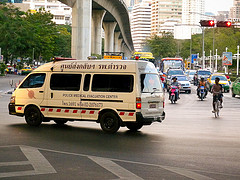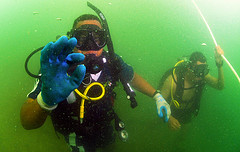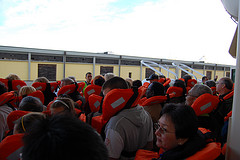 Troy Tiburcy was on holiday in Thailand after Christmas when he apparently had a SCUBA diving accident and suffered decompression sickness. Since the accident, he has been in a Bangkok hospital and is being treated for severe neurological issues, but he is not well enough to fly home.
Troy Tiburcy was on holiday in Thailand after Christmas when he apparently had a SCUBA diving accident and suffered decompression sickness. Since the accident, he has been in a Bangkok hospital and is being treated for severe neurological issues, but he is not well enough to fly home.
Unfortunately, Troy did not have travel insurance, so there are no ready funds or aid to pay for and coordinate an evacuation to get him home to his family.
In turn, his family had to pool their resources to fly Tiburcy’s mother to the hospital so he would have someone he knew with him. The medical bills are said to be about $1,600 a day and mounting. So far, the Australian Embassy has been able to provide a translator but no transportation or financial aid.
This dreadful situation, one the family calls a “living nightmare” underscores one truth: travel insurance with adequate medical coverage and coverage for a medical evacuation is absolutely essential for trips like these. Our hearts go out to the Tiburcy family and we urge travelers – especially those who plan to engage in adventurous activities like SCUBA diving – to research and purchase travel insurance.
With proper travel insurance, an injured traveler can have:
- funds for emergency medical care
- assistance in getting a friend or family member to their bedside
- a coordinated medical evacuation to a hospital back home
- someone to keep in touch with the traveler and relay messages back home to family, friends, and business partners








